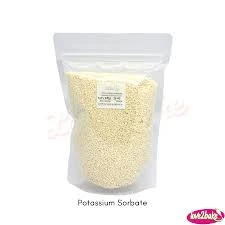
phosphorus fertilizer
The Importance of Phosphorus Fertilizer in Agriculture
Phosphorus (P) is one of the essential macronutrients required for the growth and development of plants. It plays a pivotal role in various physiological processes, including energy transfer, photosynthesis, nutrient movement, and the synthesis of nucleic acids. Due to its significant contributions to plant health, phosphorus fertilizer has become a critical component in modern agriculture.
Phosphorus is often found in soil in forms that are not readily available to plants. Consequently, many agricultural systems rely on the application of phosphorus fertilizers to ensure that crops receive adequate amounts of this vital nutrient. Common forms of phosphorus fertilizer include superphosphate, triple superphosphate, and ammonium phosphate, each differing in concentration and solubility. These fertilizers enhance soil fertility and directly influence crop yield and quality.
One of the primary benefits of phosphorus fertilizer is its ability to promote root development. A strong root system enhances water and nutrient uptake, which is crucial for plants, especially during periods of drought or nutrient deficiency. Moreover, phosphorus is integral to the formation of ATP (adenosine triphosphate), the energy currency of cells, which is essential for various metabolic processes in plants.
phosphorus fertilizer

However, the application of phosphorus fertilizer must be managed carefully to prevent environmental problems. Excessive use can lead to phosphorus runoff, which contributes to water pollution and eutrophication in aquatic ecosystems. This process can result in algal blooms that deplete oxygen levels, harming aquatic life and disrupting local ecosystems. Therefore, farmers and agricultural scientists emphasize the importance of soil testing and precision agriculture practices to optimize phosphorus use and minimize environmental impact.
In recent years, there has been a growing interest in sustainable phosphorus management. Innovations such as slow-release fertilizers, organic phosphorus sources, and recycling of phosphorus from waste materials are being explored. These practices aim to enhance phosphorus efficiency while reducing dependency on mined phosphorus resources, which are finite and unevenly distributed globally.
In conclusion, phosphorus fertilizer is a cornerstone of modern agricultural practices, critical for maximizing crop yields and supporting food security. However, the challenges associated with its use call for sustainable practices to ensure that both agricultural productivity and environmental health are maintained. As we continue to develop more sustainable methods for phosphorus management, we can help secure agricultural productivity for future generations.
-
nitrile-rubber-honoring-strict-production-standardsNewsAug.22,2025
-
aspartame-ingredients-honoring-food-safety-valuesNewsAug.22,2025
-
fertilizer-for-balanced-plant-nutritionNewsAug.22,2025
-
cyanide-gold-processing-with-high-purity-additivesNewsAug.22,2025
-
formic-acid-in-textile-dyeing-applicationsNewsAug.22,2025
-
aluminum-hydroxide-gel-in-skincare-productsNewsAug.22,2025
-
Regulatory Compliance for Global Mining Chemicals UseNewsAug.12,2025
Hebei Tenger Chemical Technology Co., Ltd. focuses on the chemical industry and is committed to the export service of chemical raw materials.
-

view more DiethanolisopropanolamineIn the ever-growing field of chemical solutions, diethanolisopropanolamine (DEIPA) stands out as a versatile and important compound. Due to its unique chemical structure and properties, DEIPA is of interest to various industries including construction, personal care, and agriculture. -

view more TriisopropanolamineTriisopropanolamine (TIPA) alkanol amine substance, is a kind of alcohol amine compound with amino and alcohol hydroxyl, and because of its molecules contains both amino and hydroxyl. -

view more Tetramethyl Thiuram DisulfideTetramethyl thiuram disulfide, also known as TMTD, is a white to light-yellow powder with a distinct sulfur-like odor. It is soluble in organic solvents such as benzene, acetone, and ethyl acetate, making it highly versatile for use in different formulations. TMTD is known for its excellent vulcanization acceleration properties, which makes it a key ingredient in the production of rubber products. Additionally, it acts as an effective fungicide and bactericide, making it valuable in agricultural applications. Its high purity and stability ensure consistent performance, making it a preferred choice for manufacturers across various industries.





